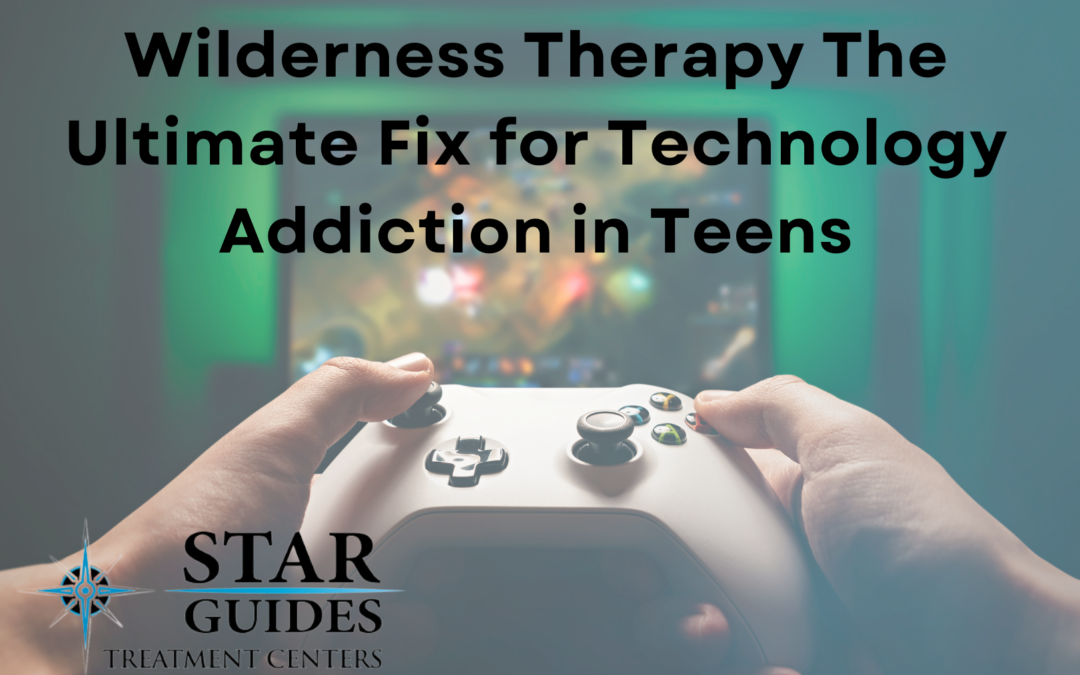Technology is at the heart of modern life. Yet, for our children, this access to endless information, entertainment, and communication comes with significant risks. Today, we’ll explore how technology addiction affects youth and how wilderness programs can offer a therapeutic escape.
The Digital Dilemma Affecting Our Youth
In our interconnected world, technology offers countless advantages. From educational resources to social media, our devices have become indispensable. However, for children born into this digital age, the line between benefit and harm becomes increasingly blurred.
The omnipresence of technology has led to a unique problem—technology addiction. This type of addiction impacts daily life and social interactions, often leading to negative consequences that parents might not immediately recognize.
The Double-Edge of Technology
Benefits of Technology
Technology provides:
- Easy access to information.
- Enhanced connectivity with loved ones.
- Diverse forms of entertainment.
- Tools for education and productivity.
Harms of Technology
Despite these benefits, excessive usage can be detrimental:
- Disruption of Daily Life: Constant notifications and screen time can interfere with daily activities and responsibilities.
- Social Isolation: Instead of deepening connections, technology can create a false sense of social interaction.
- Mental Health Issues: Overuse of technology has been linked to anxiety, depression, and other mental health disorders.
Technology Addiction in Youth
Technology addiction manifests through behaviors like incessant phone checking and prolonged gaming sessions. Research shows that the brain patterns of those addicted to technology resemble those of substance abusers. This similarity underlines the seriousness of the issue.
Impact Analysis
Effects on Individuals
- Cognitive Impairments: Overuse impacts emotional processing, attention, and decision-making.
- Physical Health Issues: Poor posture, headaches, and eye strain are common.
- Mental Health: Increased anxiety, mood swings, and depression are frequent among tech-dependent youths.
Effects on Social Relationships
- Decreased Interest in Meaningful Activities: Addicted individuals may neglect hobbies and social activities.
- Academic Challenges: Skipping classes or failing to complete homework due to technology distractions.
- Hours Spent Online: Teens spend an average of 9 hours a day on screens, affecting physical and social development.
Wilderness Programs as an Intervention
Introduction to Wilderness Therapy
Wilderness therapy involves outdoor adventure activities designed to help individuals confront and overcome their issues. This therapeutic intervention is particularly effective for technology addiction.
Effectiveness of Wilderness Programs
- Disconnection from Technology: Being in nature naturally reduces screen time.
- Development of Life Skills: Participants learn teamwork, problem-solving, and self-reliance.
- Improved Mental Health: The tranquility of nature combined with therapeutic support leads to decreased anxiety and improved mood.
Case Studies and Testimonials
Real-life Examples
- John’s Journey: John, a 16-year-old, struggled with gaming addiction. After attending Star Guides Wilderness Therapy, he reconnected with nature and developed healthy habits.
- Sara’s Story: Sara’s parents noticed her declining grades and social isolation due to constant screen time. Wilderness therapy helped her rediscover her passion for art and sports.
Testimonials
- Parent’s Perspective: “Star Guides Wilderness Therapy transformed my son’s life. He now spends more time with family and less on his phone.”
- Participant’s Insight: “Being away from screens helped me see the world differently. I feel more present and engaged.”
Recognizing Technology Addiction
Symptoms to Watch For
- Behavioral Changes:
- Anxiety or depression.
- Dishonesty about screen time.
- Mood swings and irritability.
- Social Impacts:
- Isolation from family and friends.
- Procrastination and inability to prioritize.
- Poor personal hygiene and insomnia.
Risks of Ignoring the Problem
- Mental Health Decline: Increased risk of depression, anxiety, and social anxiety.
- Academic Performance: Lower grades and potential dropout.
- Physical Health: Poor posture, sedentary lifestyle, and related health issues.
Conclusion
Technology addiction poses a serious threat to the well-being of our youth. However, solutions like wilderness programs offer a path to recovery. By disconnecting from screens and reconnecting with nature, these programs help individuals develop healthier habits and improve their mental health.
For parents concerned about their child’s technology use, wilderness therapy could be the key to unlocking a balanced and fulfilling life. Consider exploring options like Star Guides Wilderness Therapy to provide your child with the tools they need to thrive.
Want to learn more? Explore how wilderness therapy can help by visiting our website today!

